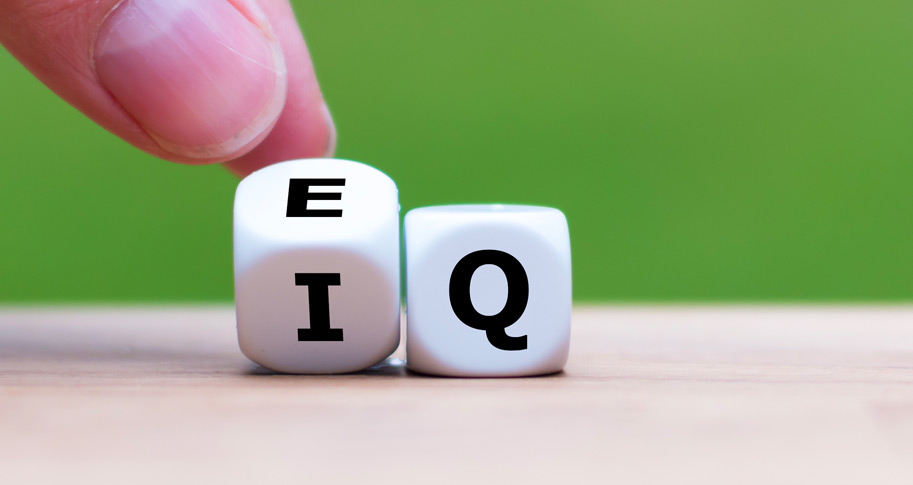
I can tell you without a doubt that emotional intelligence (EQ) is the game changer. In fact, I routinely tell folks that if you only take time to invest in one area of personal development, please spend that time growing your EQ. It is that important. Learn to pay attention. Notice. In fact, become infatuated with noticing. Not to get all metaphysical here, but a fanatical level of noticing affords you the ability to examine yourself, your actions, and everything happening around you while at the same time being yourself and performing those actions.
Wow, that got deep fast! Let’s back up.
Twenty-five years ago, Daniel Goleman wrote a book on emotional intelligence that remained on the New York Times bestseller list for a year-and-a-half and is currently in print worldwide in 40 languages. It was a game changer.
In this seminal book, he argued that existing definitions of intelligence (IQ) were inadequate, essentially redefining what it meant to be smart. While IQ was still important, intellect alone was no guarantee of expertise in identifying the emotional constructs of humans. It appeared it took a different type of complementary intelligence – emotional intelligence – to process expressive information and utilize it effectively.
I’ve heard some laugh about the following maxim although there is no punchline. The saying goes that “you’ll get hired for your IQ and fired for your EQ”. Apparently, no one fires the best engineer, the best speech writer, the best pilot, or the best programmer. But the rest of us will be asked to leave if we can’t get along with others. It seems playing well with others trumps smarts. And whether or not you have the ability to get along well with others has a tremendous amount to do with your level of emotional intelligence.
Emotional intelligence in its simplest form is a 4-box grid. It’s an understanding of yourself and an understanding of others both in terms of awareness and regulation. The definitions are as follows.
- Self-awareness is the ability to recognize and understand your behaviors, moods, emotions and what drives them, as well as their effect on others. It’s understanding how you’re wired (your core personality) and how that wiring works for you or against you. It’s about tuning in and paying attention to your inward self. It’s about noticing emotions.
- Self-management is the ability to regulate or redirect disruptive impulses, outbursts, and moods. The ability to manage yourself to a productive outcome. The propensity to suspend judgment; to think before acting. It’s paying attention to your outward self through your actions. It’s about noticing logic.
- Social awareness is the ability to accurately recognize and interpret the emotional currents of other people – often through non-verbal cues - and skill in treating them according to their emotional reactions. Empathy plays a key role here as does intently listening at a deeper level. On a larger scale, it’s being able to essentially read-the-room in an organizational setting and adjust accordingly. It’s about approaching situations more strategically. It’s paying attention to your surroundings that your impact on them. It’s about noticing environments.
- Relationship management is the proficiency in managing relationships and building networks over time and distance. The ability to find common ground and build rapport with others. Acting in ways that are harmonizing, inspiring, and influencing. It’s paying attention to the bigger picture. It’s about noticing humanness.
Notice the number of times paying attention was mentioned. Notice the number of times noticing was repeated. That’s by design and not by accident. Being able to notice and to pay attention – whether that’s to yourself, others, situations, or relationships – is at the core of emotional intelligence.
It bears repeating. If you only study one thing now until the end of time, please spend your energy developing greater EQ. It is that important. Learn to notice. Pay attention. Pay attention to what you’re paying attention to. Then, apply intellect to what you’ve noticed. IQ shows off your smarts; EQ makes you more human. And being more human is the game changer.
Ancora Imparo… (Still, I am learning)
A version of this article also recently appeared in TB&P

 Founder of
Founder of 



